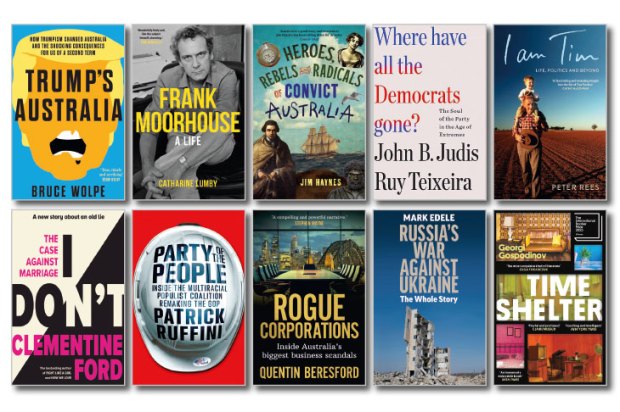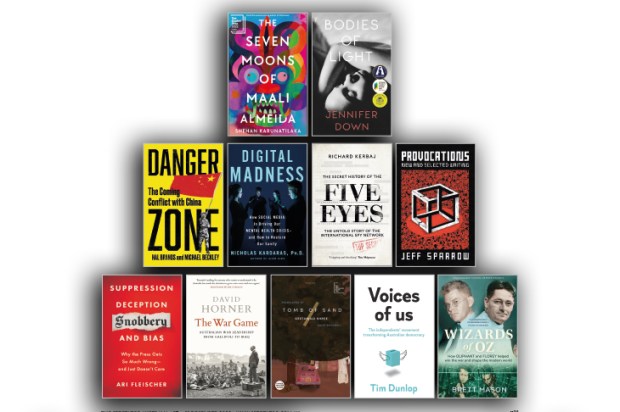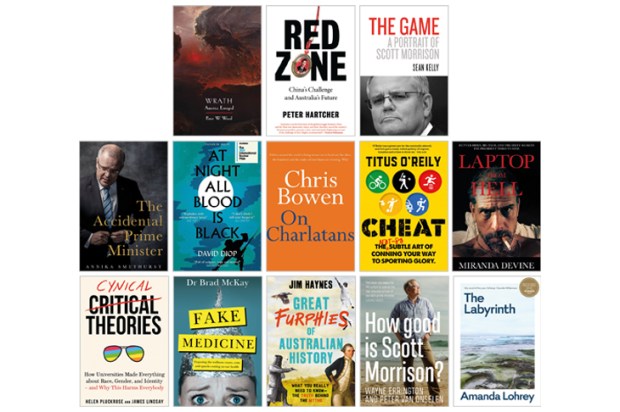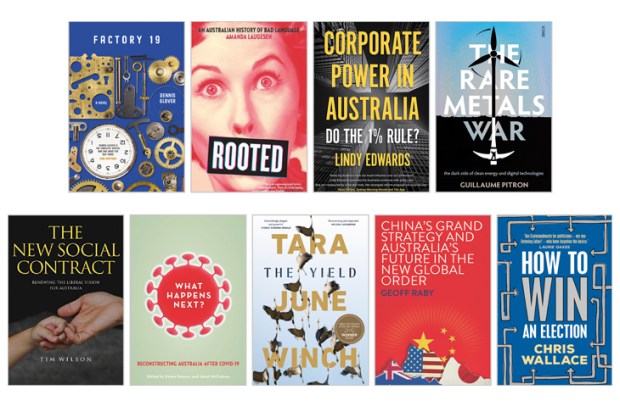Yes, economics really is a dismal science, if this book is to be believed. Even when things are going right, they’re just setting up you up for disasters down the track. We’ll all be rooned, and there are charts and tables to prove it.
That seems to be the essential message from Ross Garnaut, a senior academic, ambassador and long-time adviser to Commonwealth governments. (That last point requires clarification: specifically, he has been an adviser to the ALP, both in and out of office.) His view is that the resources boom was a very mixed blessing, as it resulted in an overmuscular currency that would make life very difficult for the non-resource export sector. It led to a surge in government outlays during the Howard era which, says Garnaut, led to the current fiscal deficits.
Hold it. Rewind that, please, Ross. Yes, outlays increased in the second half of the Howard era (the first half being mainly spent on paying down the debt it inherited). But when the Howard government left office the Budget was firmly in the black and there was a decent stock of assets in the bank.
Look at this this way. Suppose you inherited a chunk of money from old Uncle Fred (the revenue windfall from the mining boom). Most people would do three things: first, they would have a party (in government terms, tax cuts and welfare increases); second, fix up the house (infrastructure spending, like the roads and ports package of 2006); third, put some aside for a rainy day (assets purchases). This was largely what the Howard government did, an approach of common sense and prudence. Indeed, the Howard government was usually attacked for not spending enough money, not for spending too much.
So it seems rather churlish for Garnaut to now say that more of the windfall should have been saved. It misses the basic point that the Rudd government ran down all the assets they inherited: if there had been more there, they would have spent that too. It might mean that the current debt level might be lower but the overall picture would be similar.
In hindsight, perhaps the Howard government should have spent more of its windfall on tax cuts rather than assets, simply on the basis that tax cuts are harder to reverse. Maybe they believed Kevin Rudd when he said in 2007 that he was a fiscal conservative. Big mistake.
Garnaut simply ignores most of this, saying that the Howard government ran out of reform energy after the introduction of the GST (making no real mention of the attempts at labour market liberalisation). Instead, he focuses on the impact of the rise of the dollar. Sometimes, Garnaut seems to think that he is the first to have noticed, although he does not actually have much new to say about it.
The central problem with currency issues is that there is not a great deal that can be done about them. Interest rates can be lowered (as Garnaut suggests) but that can only do so much. The numbers jump around a bit but it might be said that even ‘emergency’ low interest rates did not bring the dollar down (against the greenback) in a structural way. The Australian currency is a small player in global terms, and much of its movement is residual, a side-effect of changes elsewhere.
Given this, the best thing an Australian government can do is get its own house in order, so that any downward movements in the dollar can be seen in a positive context and hopefully locked in.
Garnaut accepts the principle, but he seems to forget a great deal about the Labor era, especially the Gillard section. For example, he calls for greater skilled migration but neglects to examine the Gillard government’s strident xenophobia about the 457-visa programme. Amazingly, he thinks that Gillard and Swan did a ‘fair job of economic policy’ and even applauds ‘firm and agile prime ministerial leadership’.
Really? Well, only if ‘firm’ is doing with great determination whatever the unions tell you to do and ‘agile’ means promising one thing and doing the opposite.
Garnaut’s applause for Rudd and Gillard is even stranger since he identifies the need for productivity improvements, which slumped dramatically as the workplace was re-regulated. Oddly, he puts labour market reform on his list of priorities but then ignores it.
Garnaut devotes several sections of the book to reform of the federal system and to conflicts of interest. Good ideas, but we might remember that when he was commissioned to write the ALP policy on climate change, in the run-up to the 2007 election, the project was financed by the party and the State and Territory Labor governments (the Victorian government also provided office space). That is, taxpayer money was expressly used to finance party activity. So is Garnaut really one to be talking about conflicts of interest?
This recurring pattern of selectivity makes the book look less like an objective study of Australia’s economic picture and more like an attempt to reshuffle the facts and figures to fit partisan preconceptions. At the same time, Garnaut seems to be setting the Abbott government up for a fail grade, with yardsticks that would be extremely difficult for anyone to meet. Essentially, you can blame the people who caused the problems or blame the people who are trying to fix them. Garnaut does the latter.
He would do better, one might think, using his Labor connections to push the party along a more rational course, rather than the populist whining so far on show. It would make more sense than the doom and gloom of Dog Days, but we should probably not expect it.
Got something to add? Join the discussion and comment below.
Get 10 issues for just $10
Subscribe to The Spectator Australia today for the next 10 magazine issues, plus full online access, for just $10.
Derek Parker is a regular reviewer for The Spectator Australia.
You might disagree with half of it, but you’ll enjoy reading all of it. Try your first month for free, then just $2 a week for the remainder of your first year.













Comments
Don't miss out
Join the conversation with other Spectator Australia readers. Subscribe to leave a comment.
SUBSCRIBEAlready a subscriber? Log in